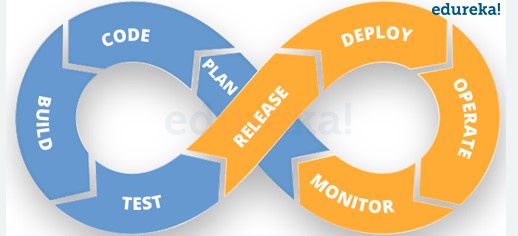Continuous improvement is a fundamental principle in DevOps culture that emphasizes ongoing enhancement and optimization of processes, practices, and tools to deliver value to customers more effectively and efficiently. It is based on the philosophy of iterative refinement, where teams continuously seek to identify areas for improvement, experiment with new ideas, and make incremental changes to achieve higher levels of performance, quality, and innovation.
Continuous improvement in DevOps is guided by several key principles and practices:
-
Kaizen Philosophy: Continuous improvement is rooted in the Japanese concept of "Kaizen," which translates to "change for the better" or "continuous improvement." Kaizen emphasizes the importance of incremental, continuous changes over time to achieve significant improvements in productivity, quality, and effectiveness. DevOps teams embrace the Kaizen philosophy by encouraging small, frequent improvements and fostering a culture of learning, experimentation, and collaboration.
-
Feedback Loops: Continuous improvement relies on feedback loops to gather insights, identify opportunities for improvement, and measure the impact of changes. DevOps teams leverage various feedback mechanisms, including customer feedback, automated testing, monitoring, metrics, and retrospectives, to continuously assess performance, identify bottlenecks, and prioritize improvement initiatives. By collecting and analyzing feedback systematically, teams can make informed decisions and drive targeted improvements across the software delivery lifecycle.
-
Iterative Development: DevOps promotes iterative development practices, such as Agile and Lean methodologies, that emphasize short development cycles, frequent releases, and rapid feedback. By breaking down work into small, manageable increments and delivering value iteratively, teams can validate assumptions, gather feedback early, and course-correct as needed, leading to faster innovation and higher customer satisfaction.
-
Automation: Automation is a cornerstone of continuous improvement in DevOps, enabling teams to streamline repetitive tasks, eliminate manual errors, and accelerate delivery cycles. DevOps teams automate various aspects of the software delivery pipeline, including code build, testing, deployment, provisioning, configuration management, and monitoring. Automation reduces cycle times, increases consistency, and frees up resources to focus on higher-value activities, such as innovation and problem-solving.
Apart from it by obtaining DevOps Training, you can advance your career in DevOps. With this course, you can demonstrate your expertise in Power BI Desktop, Architecture, DAX, Service, Mobile Apps, Reports, many more fundamental concepts, and many more critical concepts among others. -
Culture of Learning: Continuous improvement thrives in a culture of learning, where individuals and teams are encouraged to seek knowledge, experiment with new ideas, and embrace failure as an opportunity for growth. DevOps promotes a learning culture by fostering psychological safety, providing opportunities for skill development, sharing knowledge transparently, and celebrating successes and failures alike. By nurturing a growth mindset and empowering individuals to take ownership of their learning journey, organizations can foster creativity, resilience, and adaptability.
-
Cross-Functional Collaboration: Continuous improvement in DevOps is a collective effort that involves collaboration across different functional areas, including development, operations, quality assurance, security, and business stakeholders. DevOps teams break down silos, promote cross-functional collaboration, and align incentives to optimize end-to-end value delivery. By working together seamlessly and sharing accountability for outcomes, teams can identify synergies, resolve conflicts, and drive holistic improvements that span the entire software delivery lifecycle.
-
Lean Thinking: Lean principles, derived from manufacturing and process improvement methodologies such as Lean Six Sigma, inform continuous improvement in DevOps. Lean emphasizes the elimination of waste, maximizing value, and optimizing flow to deliver products and services efficiently. DevOps teams apply Lean thinking to identify and eliminate bottlenecks, reduce cycle times, and optimize resource utilization, resulting in faster delivery, higher quality, and lower costs.
In summary, continuous improvement is a core tenet of DevOps culture that drives organizations to strive for excellence, innovation, and customer satisfaction. By embracing the principles of Kaizen, leveraging feedback loops, practicing iterative development, embracing automation, fostering a culture of learning, promoting cross-functional collaboration, and applying Lean thinking, DevOps teams can continuously evolve and improve their processes, practices, and outcomes to stay ahead in an ever-changing landscape.


No comments yet